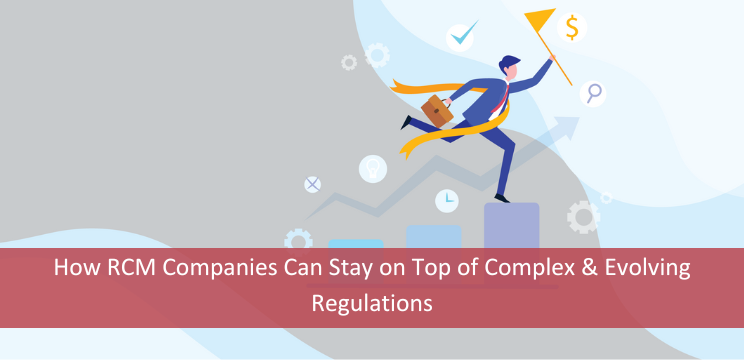How RCM Companies Can Stay on Top of Complex & Evolving Regulations
In the intricate landscape of the healthcare industry, revenue cycle management (RCM) companies play a pivotal role in ensuring smooth financial operations for healthcare providers. However, the ever-changing and complex regulatory environment poses significant challenges. In this blog post, we will delve into strategies that RCM companies can adopt to navigate these complexities and stay compliant with evolving regulations.
Understanding the Regulatory Landscape:
Healthcare regulations are like a constantly shifting puzzle, with various pieces provided by different regulatory bodies. Compliance with these regulations is not just a matter of legal adherence but also of patient confidentiality, data security, and financial integrity. Some key regulations to be mindful of include the Health Insurance Portability and Accountability Act (HIPAA) and Centers for Medicare & Medicaid Services (CMS) guidelines.
Building a Regulatory Intelligence System:
Staying informed is the first step in compliance. RCM companies must establish a regulatory intelligence system that actively monitors and analyzes regulatory changes. Tools like regulatory databases, industry publications, and automated alerts can help companies stay updated, enabling them to anticipate shifts and plan proactively.
Implementing Compliance Training and Education:
Regulations are as intricate as they are crucial. To ensure adherence, RCM companies must educate their staff about these regulations. Well-structured compliance training programs should be developed, covering various aspects of the regulatory landscape. Regular workshops and seminars can further engage employees and keep them informed about the latest updates.
Customizing RCM Strategies for Compliance:
The one-size-fits-all approach doesn’t work in RCM when it comes to compliance. Each regulatory change might necessitate adjustments in RCM processes. For instance, billing codes might need revision, or patient data handling protocols may require updates. Leveraging technology, such as compliant electronic health record (EHR) systems, can help adapt processes efficiently.
Establishing Cross-Functional Collaboration:
Navigating complex regulations isn’t solely the responsibility of the compliance team. It requires collaboration between various departments. Legal, IT, operations, and finance need to work together to interpret regulations accurately and implement necessary changes cohesively.
Engaging Legal Experts:
Legal professionals can provide invaluable insights into complex regulations and their implications. Having legal experts on board or consulting legal advisors can be crucial in understanding the finer points of compliance and mitigating risks associated with non-compliance.
Utilizing Technology Solutions:
Technology can be a powerful ally in the quest for compliance. Automated systems can streamline compliance tasks, reduce errors, and ensure accurate record-keeping. Robust EHR systems not only facilitate accurate documentation but also enhance patient data security. Implementing cybersecurity measures is equally essential to protect sensitive patient information.
Conducting Regular Audits and Assessments:
Compliance is an ongoing journey. Regular internal audits and assessments are vital to identify gaps in compliance efforts. By conducting periodic checks, RCM companies can pinpoint areas that require improvement, ensuring continuous alignment with regulations and reducing the risk of non-compliance.
Adapting to Future Regulatory Changes:
Change is a constant in the healthcare regulatory landscape. The lessons learned from past adjustments can inform future strategies. RCM companies should remain adaptable, staying vigilant for new regulations and prepared to pivot their processes when necessary.
In the world of healthcare finance, RCM companies must remain vigilant to the ever-changing regulatory landscape. By building a robust regulatory intelligence system, fostering cross-functional collaboration, utilizing technology, and engaging legal expertise, these companies can navigate complexities with confidence. The key lies in proactive education, strategic adaptation, and a commitment to maintaining compliance, ensuring their continued success while upholding the integrity of healthcare systems.




